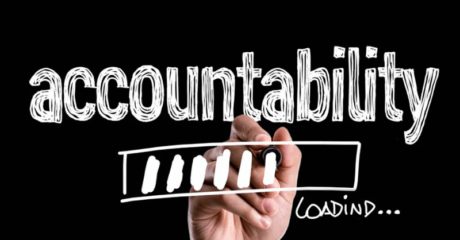

Wondering how to become a paralegal? With an increasing demand for paralegals, it’s a very common question nowadays. However, with a basic understanding of paralegal requirements, you will be well-prepared to pursue a career in this field.
Table of Contents
What is a Paralegal?
According to the Institute of Paralegals in the United Kingdom-
“A paralegal is a non-lawyer who does legal work that previously would have been done by a lawyer. Or, if done by a lawyer, would be charged for.”
In general, a paralegal is a highly valued legal team member with extensive knowledge about law, and legal matters, yet is not a qualified lawyer. Paralegals offer an extended variety of organisational and legal work. They operate with solicitors, barristers and chartered legal executives. They are usually associate members of the Chartered Institute of Legal Executives (CILEx).
The initial concept of paralegals started with the Paralegal Association (now the National Association of Licensed Paralegals) in the mid-1980s in the UK. However, the oldest corporate professional body for paralegals in the UK set the competency standards for paralegals and legal secretaries. They deal with legal issues, support, represent and promote paralegals in the Institute Of Paralegals.
Both the Institute and Association have comparable roles in registering and recognising Paralegals, though they do not always match all practice principles.
However, only recently, paralegals are seen as more than insignificant assistants to qualified lawyers. They are now a newly rising and increasingly distinct group of legal professionals.
What does a Paralegal Do?
Paralegals generally work in law firms or chambers, but we can often find them in the private and public sectors. And also in not-for-profit organisations. A paralegal’s task is to assist lawyers in their job, and they can prefer to specialise in a specific law area.

Now before discussing how to become a paralegal, first let’s talk about what is a paralegal job? While they are often considered as lawyer’s assistants, their work will usually be similar to that of a trainee or a newly-qualified solicitor, depending on their level of expertise.
Daily Tasks
The daily tasks that a paralegal carries out will vary depending on their area of specialisation and the level of experience they have. It may or may not include some of the following tasks:
- Legal research
- Negotiations
- Project management
- Document management
- Drafting basic legal documents
- Administrative support
- Client care and client progression
Paralegals have a connection to a vast amount of legitimate business. They are sourced in both public and private sectors as well as law firms. In addition, paralegals can specialise in one specific branch of the law, i.e. corporate, criminal, banking, immigration etc.
Primary Tasks
The primary role of Paralegals is to assist Lawyers in their work. As a consequence, they get involved in a lot of diverse aspects of the legal profession. Here’s a brief look at their engagements:
- To take allegations from witnesses.
- To survey clients and reaching on relevant information.
- To research events or cases and any related legal knowledge needed.
- To exhibit diligence to Judges.
- Advising lawyers to prepare for their court cases, along with opening and closing arguments. They also aid in court for pleadings or motions.
A paralegal can further act as a Police Station Representative if they are authorised. They can give general counsel to clients held in police custody. In addition to that, they have a decent amount of down to earth tasks to get through. We mean things such as-
- Filing case files and handling client caseloads.
- Drafting documents and letters, like sale agreements, mortgages and trust agreements.
- Administrative tasks such as answering phone calls, taking correspondence and filing.
Experienced Tasks
More experienced paralegals may have to interview clients and witnesses in criminal law cases or provide legal information to clients.
More and more, experienced paralegals are doing the work solicitors used to undertake, like billing clients. But despite how much expertise you have, you’ll likely partake in various activities and work with a wide range of people every day. So, it’s doubtful that you’ll ever be bored!
N: B– Paralegal’s rights in England technically become very limited to handle prosecution and privileges of witnesses before courts or tribunals. Though, in practice, many perform in courts and particularly assizes at all levels as assistants.
Paralegals may only offer limited legal advice. Although, any person with the following exceptions, strictly forbidden:
1. Undertaking the actions possessed to solicitors under the Solicitors Act 1974.
2. Engaging in immigration work unless they are registered with the Office of the Immigration Services Commissioner.
3. Undertaking particular types of cases or compensation related to that position if not registered with the Ministry of Justice.
Salary Range of a Paralegal
The paralegal salaries in law firms in the United Kingdom can range from about £15,000 in some suburban or rural areas. However, it may reach up to £60,000 – £80,000 depends on the position of your experience and the location you serve in.

- Assisting Counsel at court
- Taking notes in court
- Presenting applications to District Judges in chambers
They can be paid daily or hourly, earning up to £60 – £260 per day.
The salary for Paralegals apparently isn’t as much as you would think. The average wage is £18,000, whereas, in reality, it can vary from a beginner salary of £13,000 to £30,000 for someone senior with a lot more experience.
How to Become a Paralegal?
Now finally, it’s time to discuss how to become a paralegal. Since the term ‘paralegal’ is not preserved as ‘solicitor’, anyone can call themselves a paralegal without any qualification or registrants. However, professional bodies are urging to change this and the term ‘paralegal’ to become a protected title.

- Certificate diploma
- Higher diploma
- Advanced diploma
- Associate degree
- Bachelor’s degree
- Master’s degree
- Paralegal certificate
Educational Qualifications
Although one needs no official qualifications to become a paralegal, they might want to consider what they study.
And it makes this profession such a competitive one. Hence, it will be advantageous if you have:
- Legal experience in the past from the area of law which you intend to practise.
- Studied in any relevant areas of law and have an academic certificate.
- A-Levels completion.

In addition to this, some organisations might look for additional qualifications related to law. For example, a certification in Paralegal & English Law 2021 might be very helpful to have.
Regardless, there are many specific qualifications and educational institutions for paralegals, which vary according to country.
Specialisations
There are multiple areas that a paralegal can specialise in. However, here are a few to get you started:
- Family law
- Criminal defence law
- Real estate law
- Corporate law or Business law
- Intellectual property law
- Estate planning and probate law
Skill Sets
A paralegal’s work is usually in a highly acknowledged territory. A bright and bold appearance and confident demeanour are crucial. If the court requires you to be present there unexpectedly, you can not present with a crumpled shirt or baked bean stains on your clothes. You need to be always ready.

In the paralegal profession, you need to read, digest and process vast amounts of information into data. And you will need to use that information in a legal case in order to succeed in any fact. It means that you need phenomenal organisational skills along with the capacity of communicating all the details clearly. Swift typing skills are also effective in order to keep up with all the notes and research.
Like almost all legal positions, a Paralegal needs to be able to work fine under pressure without losing great attention to detail. You will also be handling confidential and sensitive information, so the following are great virtues to have
- Patience
- Sensitivity
- Tact
These are also the primary vital qualities in this profession to succeed. But, first, you need to make sure that your clients and witnesses trust you. And in case if you don’t play fair with others, you will soon become a spare wheel.
The bottom line is, although you don’t require higher study to become a paralegal, you need a broad range of skills in this field. Choose the profession if the following skill-sets sound like you-
- Good organisation skills
- Good communication skills
- A passion for the law
- Ability to work effectively under pressure
- Analytical skills
- An eye for detail
- Research competency
- Teamwork
Final thoughts
Now that you know how to become a paralegal and everything about it, do you think you can do it?
The paralegal profession is extremely stimulating and diverse. And it can show an exceptional alternative to becoming a solicitor. It is by no means inferior to the job of a solicitor. Many law graduates use paralegal work as a stepping stone to becoming a solicitor. But paralegals on themselves play a requisite role in any legal field.
If you are tempted by either its privileges or the career possibilities it opens up, then the paralegal profession might be right for you!
- Available Courses
- Marketing34
- Charity & Non-Profit Courses26
- Job Ready Programme28
- Animal care10
- Law11
- Quality Licence Scheme Endorsed111
- Teaching16
- Teaching & Academics Primary29
- Accounting & Finance Primary37
- Training5
- Design23
- IT & Software196
- Healthcare135
- Health and Safety429
- Career Bundles133
- Construction53
- Electronics30
- Hospitality27
- Health and Social Care249
- Child Psychology39
- Management389
- Business Skills285
- First Aid75
- Employability270
- Safeguarding78
- Food Hygiene107
- Personal Development1417
 Food Hygiene
Food Hygiene Health & Safety
Health & Safety Safeguarding
Safeguarding First Aid
First Aid Business Skills
Business Skills Personal Development
Personal Development






